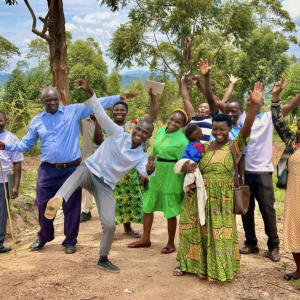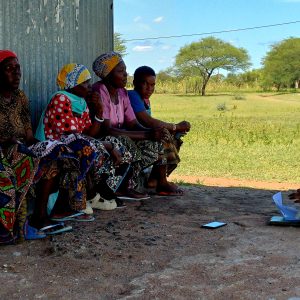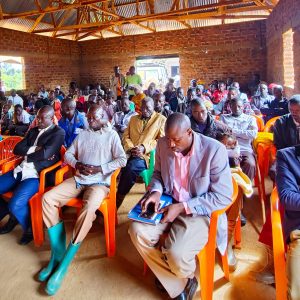In a selection of communities (in two to four districts per country), Twaweza is working with partners and in communities directly to identify local change agents; these individuals are being intensively trained and continuously mentored in the participatory action approach to surface community challenges. Central to this approach is the role of the change agent as facilitator, a catalyst to enable community members to define and address priority problems through increasing public participation in deliberation and decision-making.
We see this as a value on its own: supporting citizens to address problems and issues important to their lives in hyper local ways with proximate impact. However, the key to this work is the momentum Twaweza is bringing in leveraging such instances of successful local collective action into advocacy for policy, budget and legal changes, identification of under-represented citizen issues, calls to wider citizen action and ultimately the promotion of open civic space.
A key aspect of these discussions is to problematize well – looking beyond the surface of problems to identify underlying causes and structural or systemic aspects of these problems. And the emphasis is also on including under-represented groups and voices, including a focus on young women. Priority areas are selected collectively by the community for them to address. Community members further select a small group, again with attention to representativeness, to follow up on these issues. Follow up can involve the community’s own actions, contributing work, money or ideas, and engaging with alternative actors such as religious organisations or the private sector. It may also entail working with local leadership or escalating the problems to higher relevant levels of government. The local change agents and any other representatives or interlocutors selected by the community, with support from partners, take on directly engaging with sub-national authorities including attending relevant government meetings as observers or participants, making information requests and functioning as conduits between citizens and local government.
In this work, communities are drivers of their own destinies; their pathways to address their problems may circumvent or exclude government. While we do not push for any specific routes for citizens to address their problems, our preference is towards the revitalisation of local governance processes and institutions, democratic in principle, exclusive and dysfunctional in practice.
Citizens in one community may choose to focus on reforming the management of their water supplies, or raising funds to extend supplies to new areas. Those in another may prefer to focus on health facilities – on ensuring that health workers are present and treat patients with respect, or that facilities are kept clean and key medical supplies are available. And a third area may mobilise through their elected representatives and the media to put pressure on district or even national government to improve school infrastructure.
Twaweza and our partners, where relevant, work on the national engagement component of this work: this includes testing whether issues are salient across communities and the country, working to bring local voices and issues into national spaces (policy and media), and promoting new approaches to local problem-solving and government-community engagement. In the later part of the strategic period this may also include litigating around intractable issues unearthed through the community engagements, which are broadly relevant and for which other approaches have failed.




